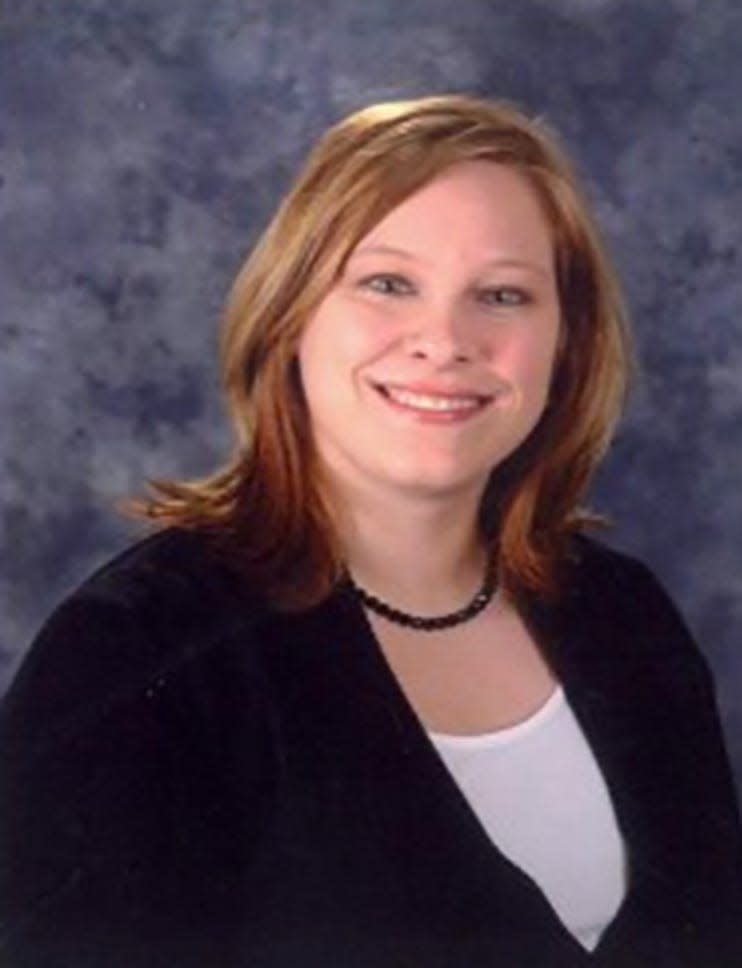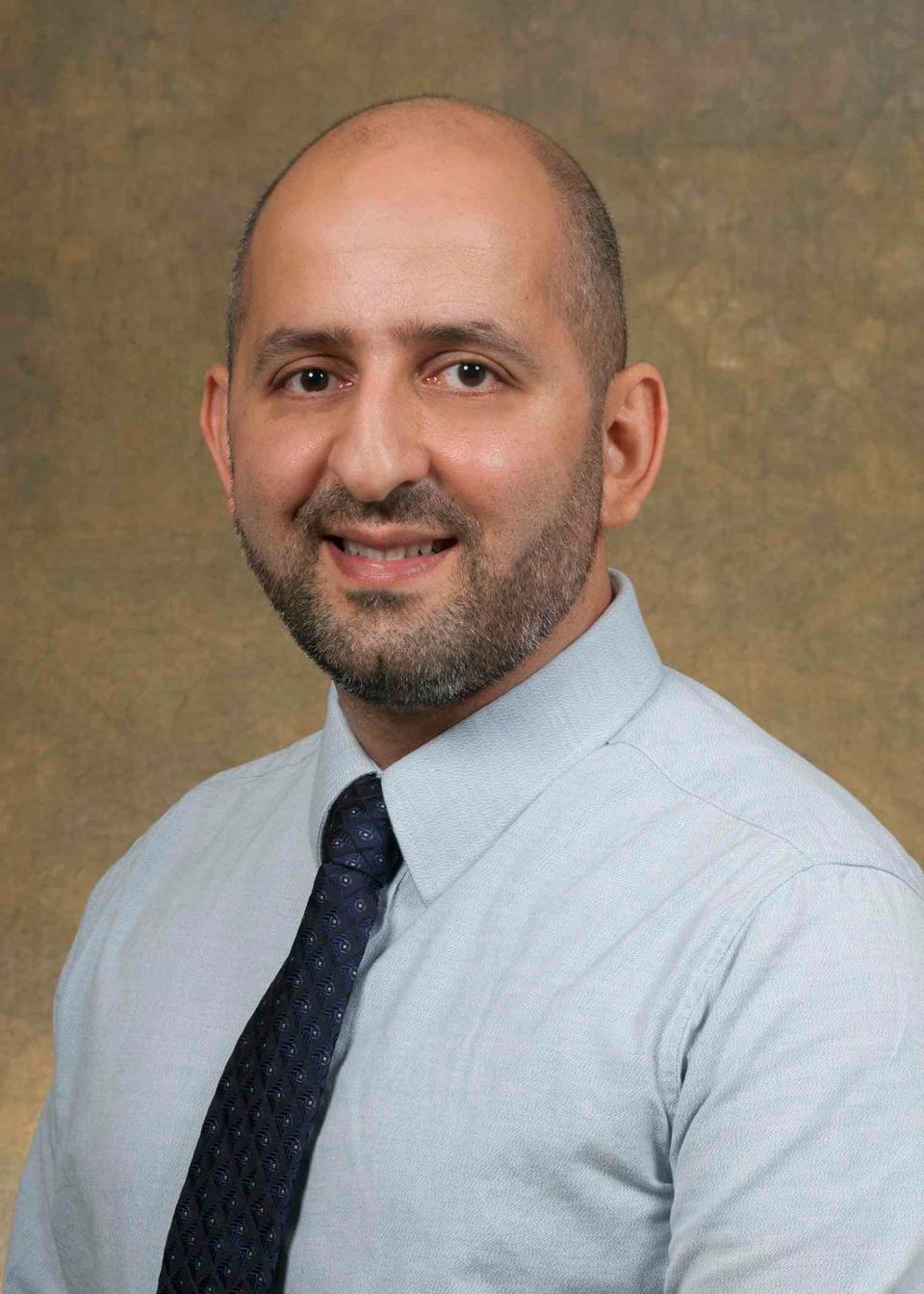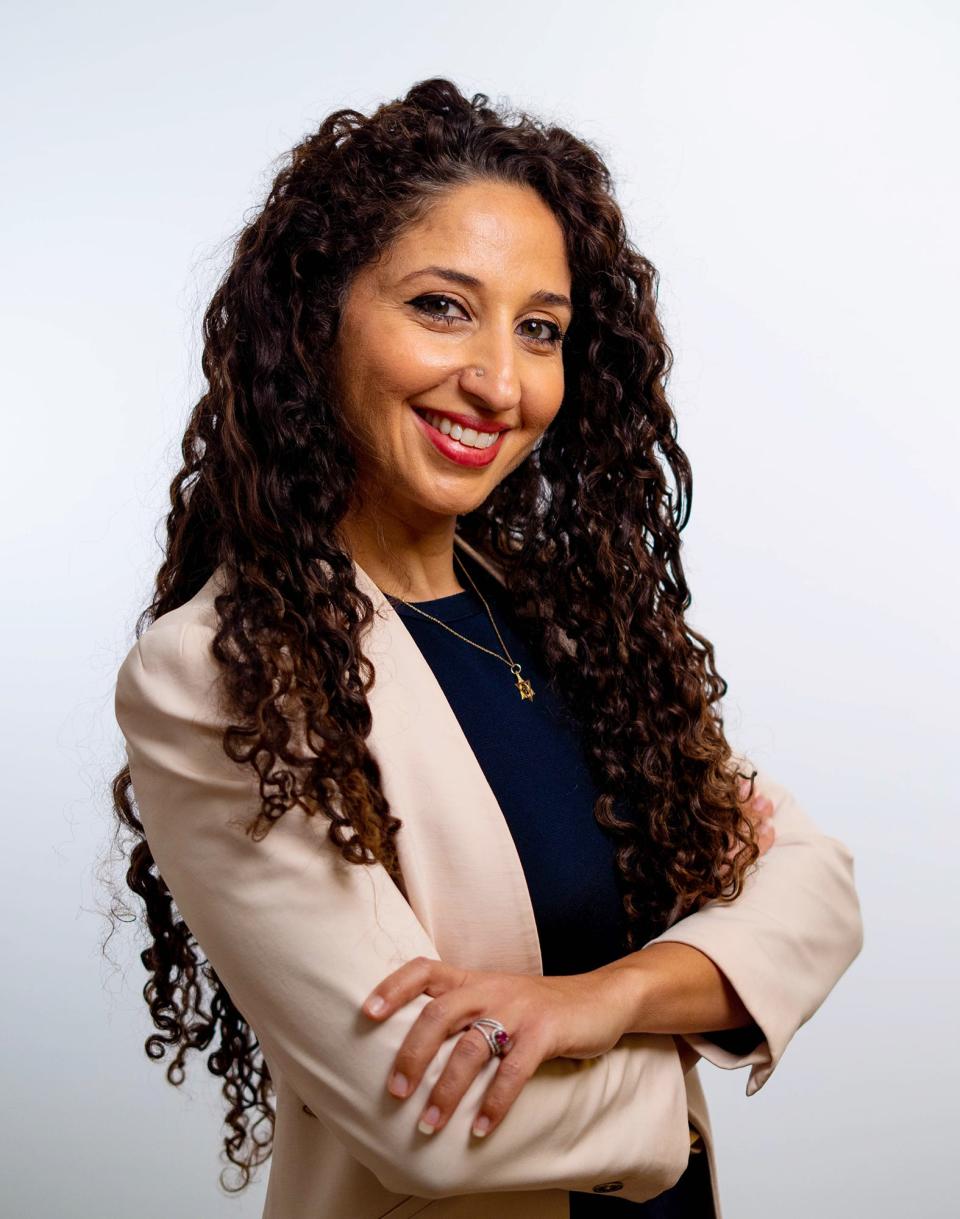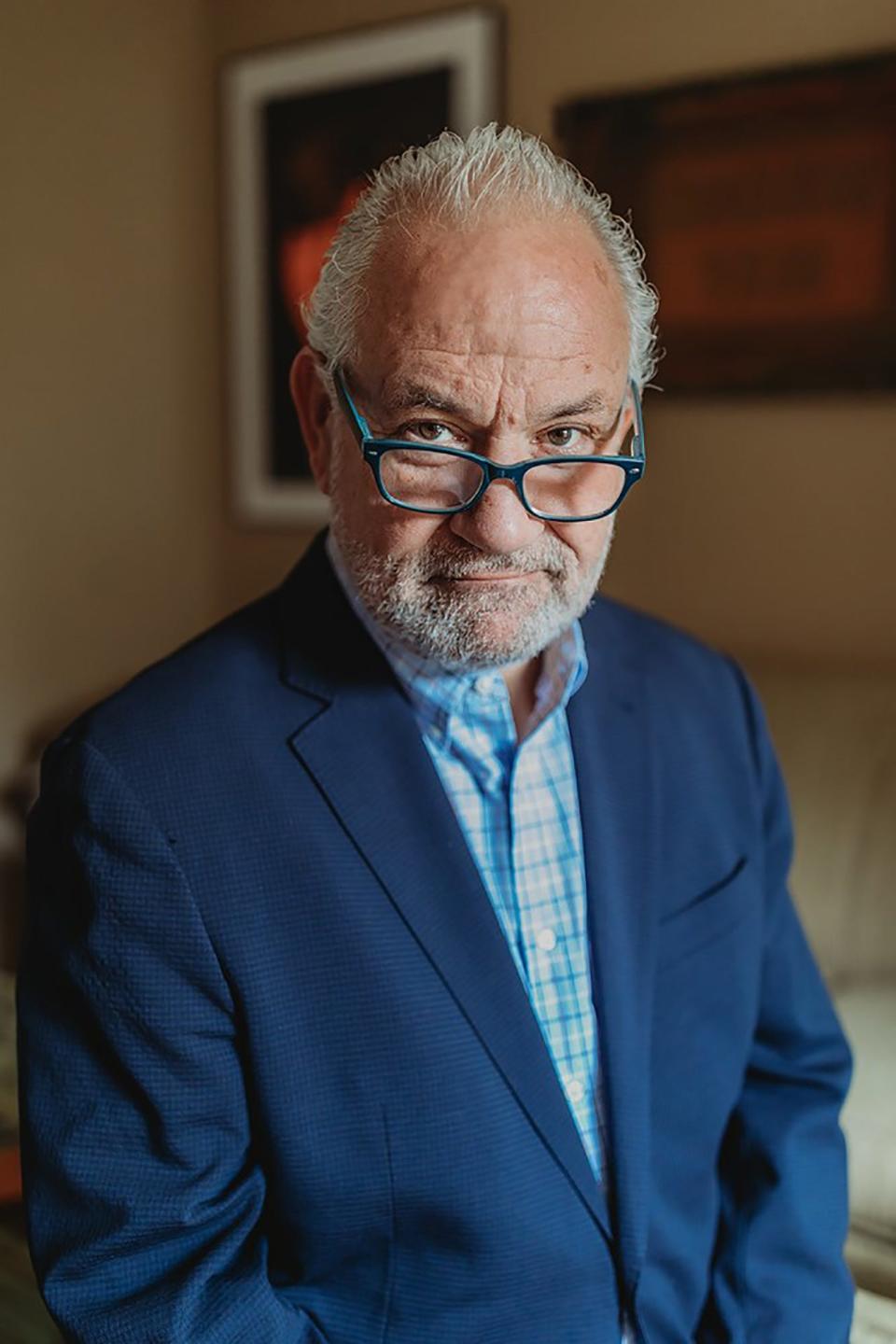Gaza war crisis leaves many feeling powerless, stuck: Mental health experts weigh in
Threats against Jewish people and institutions. A suburban Chicago man charged with murder and a federal hate crime about two weeks ago for fatally stabbing a 6-year-old Palestinian boy and critically injuring the boy's mother because they are Muslim — the man was their landlord. For many, the ongoing war in Israel and Gaza can feel personal and terrifying.
Even those without a direct connection to the dread a half a world away can suffer the mental health consequences of instant and ongoing access to horrifying images and information coming at us incessantly through traditional and social media, telling our brains over and over again that something is horribly wrong in our world.
As human beings and citizens, we want to be aware and informed. And yet consuming an endless stream of news and images, engaging in angry and fearful conversations, or isolating ourselves to avoid the pain can all contribute to a deterioration in mental health, according to experts.
The Free Press spoke with mental health experts for their advice on how to remain engaged and compassionate without damaging our own well-being.
These feelings mean we are human
Feeling stressed, sad and anxious about the war in Israel and Gaza just means we are human.
“I'm always getting people to first of all say, ‘Hey, I'm having a healthy human response. Thank God I'm still able to connect with human suffering,’ ” said Hasti Raveau, a licensed clinical psychologist and the founder and director of Mala Child and Family Institute with offices in Ann Arbor, Farmington Hills and Plymouth.
The issue, Raveau said, is when this healthy response is so chronic and unresolved, and when people experience it in isolation, constantly feeling frozen and helpless. “That's when it leads to illness and sickness,” she said.
Minority populations, especially, have learned through collective memory and lived experiences that safety erodes quickly, and hate can affect communities globally. That means events like the war in Gaza and attacks on Israel can lead right away to unsafe conditions here, both perceived and real.
“I think when we're talking about a lot of minority populations, where they've experienced a lot of collective trauma because of their faith, because of their race; whenever these things happen, it can be really, really triggering,” Raveau said.
Limit your social media time
Mental health experts agreed that limiting exposure to violent or upsetting images and news on social media is one of the most important things to do in preserving mental balance.
One reason: You never know what’s going to pop up next.
“If you are searching out information, you know what you're going to see and you expect it,” said Dr. Beth Oller, a family medicine physician practicing in Kansas. “But you can scroll through things and be hit with them when you're not expecting it; when you're not ready for it; when you're not in a place where you feel like you can deal with it.”

Consuming violent and traumatic news can, in and of itself, negatively affect our mental health, she said.
Oller suggested only getting news from trusted outlets and only for a limited amount of time. In this way, a person can feel updated, connected and empathetic without being exposed to graphic images and videos.
And we shouldn't need to constantly subject ourselves to images and updates to convince ourselves we care, she said.
“We are seeing brutality and aggression from both sides, beyond what is even defined as the sad normal of war,” said Dr. Arash Javanbakht, director of the Stress, Trauma, and Anxiety Research Clinic at Wayne State University. But, as he wrote in a paper on staying both informed and protected, “Your emotional suffering will not reduce the victims’ suffering.”

Emily Bashah, a licensed psychologist in Arizona who has written about addictive ideologies and extremism, encouraged engaging with social media when we feel prepared to do the work of thinking critically about the content. Otherwise, she warned, we can fall into risky traps.
“We want to simplify information, especially when we feel an existential threat and a crisis,” Bashah said. To do that, we use mental shortcuts like categorizing people. But those categories might be inaccurate, tied up in prejudice, biases and stereotypes. “So, on the one hand, it’s essential and human. And, on the other hand, it's dangerous and can exacerbate conflict.”
Committing to doing that critical thinking work can protect against what Bashah calls the amygdala hijack — when your emotions are allowed to dominate more rational thinking.

“Have a time limit, know when to stop, and then have some kind of plan for what you're going to do afterwards,” Bashah said. “How are you going to make sense of all of this, rather than trying to find an oversimplification and trying to put people into categories of good or evil?”
Be mindful of what you’re taking in, and how it makes you feel
When you do consume media, Raveau suggested practicing mindfulness-based strategies and noticing how you feel while you’re scrolling, watching, or even having a conversation about current events with a friend or colleague.
“Somebody could get exposed and use that energy to have helpful conversations, become involved in organizations that are promoting peace and connection; or they can cope by drinking, they can cope by getting angry online and spreading hate,” Raveau said.
“I want to really encourage people to practice mindfulness-based strategies of noticing when there is anger coming up within them. And learning how to feel that anger inside their body, but not doing things that are aggressive.”
With an awareness of how our media diet or social interactions are making us feel, we can process our thoughts and feelings and keep tabs on our own mental health needs.
“It's OK if there's a layer and level of grief or existential threat or a sense of crisis that is happening because of what is going on in the world,” said Bashah. “I think it's important not to suppress it. Allow yourself to experience it and also the opportunity to move through it and become stronger as a result.”
More: As Israel-Hamas war continues, difficult conversations unfold in Michigan classrooms
More: Israel-Hamas war hits very close to home
Engage with community, do things you enjoy and ask for help
“Whenever there’s this level of stress, we have to focus on increasing our resources, reducing demands and increasing our support,” Raveau said. Checking in with other people can validate and normalize how you’re feeling and can remind you you’re not alone.
“Many people are feeling this,” Oller said. “Find those ways to expand and interact with community, find those ways to be able to talk to others. … Social media can feel like connection, but it’s not. Truly, really connect.”
Experts suggest ramping up your own self-care, whether that’s practicing deep breathing or going for a walk or doing an activity you enjoy. If anxiety or sadness starts to affect how we function at work or school or in relationships, how we sleep or focus, they encouraged getting some help. “That increasing stress and anxiety about issues like this, that's normal,” Oller said. “But we've got to monitor ourselves. So we know when those feelings become too much.”
“People oftentimes don't have the words to understand that they're traumatized or what's going on with them or that they need some kind of support,” said Perry Ohren, a trained social worker and the CEO of Jewish Family Service of Metro Detroit, which he said joins many community-based organizations in offering mental health help to those who would like to get some.

You might be able to easily make an appointment with your family physician, who, Oller said, is typically comfortable addressing mental health issues. And several mental health hotlines exist for those who don’t have a preexisting relationship with a professional.
Channel anger into positive action
Experts agreed that protecting our mental health is easier to do when we feel a sense of agency and empowerment. Their shared advice: Take your anger, sadness, frustration and fear and turn it into positive action.
“Go out and do something good,” advised Perry Ohren, CEO of Jewish Family Services in Detroit and a trained social worker. “I think the Jewish perspective on this is the more mitzvahs — the more good deeds — we can do, the better off we'll all be, rather than simply tuning into the bad stuff and the things that just feel so horrific, which makes you and me and everybody else feel powerless,” he said.
Javanbakht said the function of fear or anger is to protect ourselves and our loved ones from danger. “There’s a lot of energy in fear; it can be used, or it can use us,” he said. “So, when we use that energy toward activism, then not only have we created a sense of control, but we have created a sense of meaning for the experiences.”
To talk with a National Alliance on Mental Illness HelpLine Specialist, call 800-950-NAMI. The Substance Abuse and Mental Health Services Administration helpline can be reached at 800-662-HELP.
Jennifer Brookland covers child welfare for the Detroit Free Press in partnership with Report for America. Make a tax-deductible contribution to support her work at bit.ly/freepRFA. Reach her at jbrookland@freepress.com.
This article originally appeared on Detroit Free Press: Coping with the mental health toll of war between Israel, Gaza

